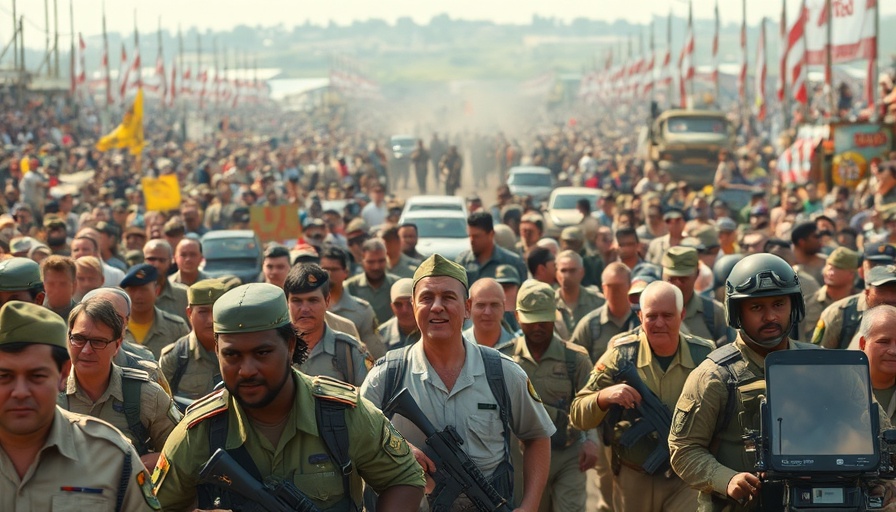
Hamas Opens Door to Peace: A Shift in Hostage Deal Negotiations
In a surprising turn of events, Hamas has signaled a readiness to engage in serious discussions regarding the demilitarization of Gaza and the potential departure of its leadership from the region. This newfound willingness comes amidst rising tensions and calls for a hostage deal that could redefine relationships within the Middle East.
The Role of Key Players: Egypt and Qatar Join Forces
Notably, Egypt and Qatar have aligned themselves with Israel’s demands, prompting a pivotal moment in these negotiations. Egypt has made clear its position, urging Hamas to fully dismantle its armed capabilities. This tough stance could facilitate the terms of a much-needed five-year ceasefire, protecting senior Hamas leaders in exchange for compliance. The collaborative efforts of Egypt and Qatar highlight the critical role external nations can play in fostering dialogue and potentially reshaping the political landscape of Gaza.
Challenges Ahead: The Obstacles Remain
Nevertheless, significant challenges remain. The hardline faction within Hamas, led by Yahya Sinwar, poses a major obstacle. Their radical ideologies and unwillingness to compromise could hinder progress towards a peaceful resolution. Such internal divisions underscore the complexity of the situation in Gaza, highlighting how various factions may interpret disarmament and demilitarization differently.
The Humanitarian Implications of These Negotiations
For many globally engaged Christians, the outcome of these negotiations is more than just a political maneuver; it's about real lives. The hostage situation has raised significant humanitarian concerns, with families torn apart and countless individuals yearning for their loved ones to return home safely. As discussions progress, understanding the gravity of the human aspect behind these negotiations becomes essential. Advocacy for humanitarian relief must remain at the forefront as governments deliberate the next steps in this complex equation.
Faith in Action: Engaging with the Hostage Crisis
As we collectively watch these developments unfold, there is an opportunity for members of the Christian community to engage thoughtfully. Whether through prayer, advocacy, or supporting humanitarian initiatives, individuals can play a part in addressing the needs arising from the crisis. Building interfaith dialogue and fostering compassion towards those affected can also serve as a vital step towards peace.
Looking Ahead: Future Predictions and Trends
Looking forward, the potential outcomes of these negotiations could set precedents for future interactions not only between Israel and Hamas but also among other geopolitical players in the region. Should these discussions lead to a substantial resolution involving disarmament, it might pave the way for broader peace talks that include various factions and international stakeholders.
Cultivating Understanding within the Faith Community
The continuing dialogue surrounding the Israeli-Palestinian conflict brings to light deeply entrenched misunderstandings surrounding both communities. Addressing misconceptions within the faith community can cultivate a better understanding of the complexities involved. It is essential that discussions focus on hope and peace rather than division and animosity, allowing for a compassionate narrative that resonates with the core tenets of Christian beliefs—love and reconciliation.
As these negotiations unfold, it is vital to stay informed, engaged, and supportive of efforts to promote peace and understanding across divides. Whether through prayer or action, our involvement can contribute to shaping a more hopeful future for those caught in the midst of conflict.
 Add Row
Add Row  Add
Add 








Write A Comment